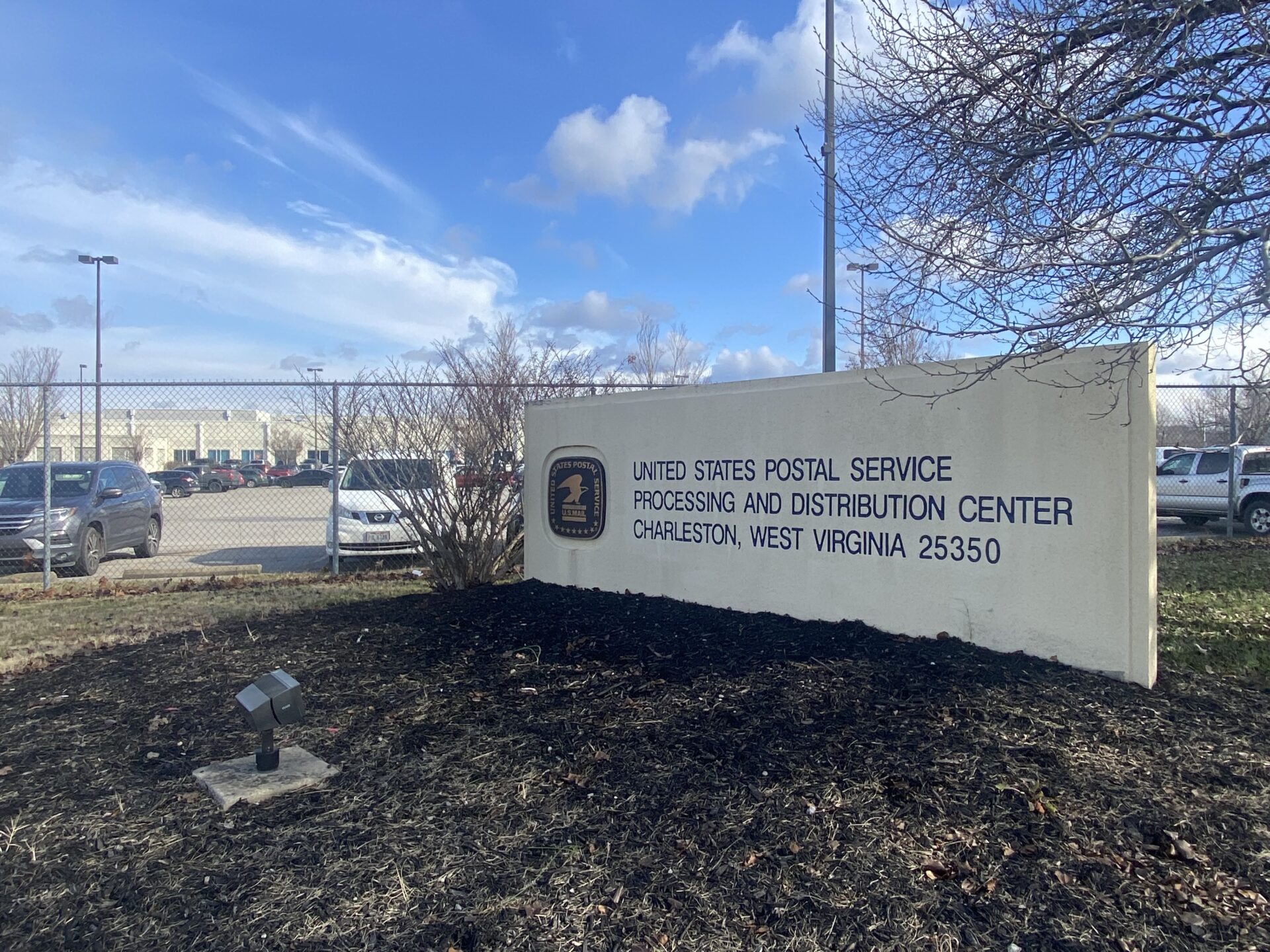The United States Postal Service (USPS) is postponing mail delivery network changes nationwide, which could affect the proposed downsizing of its only full mail processing facility in West Virginia.
Last month, USPS announced it would follow through on plans to move certain mailing operations to facilities in the Pittsburgh area. This followed months of union protests, alongside concerns from residents and lawmakers that the move could increase mail delivery times or negatively affect postal workers.
The Charleston Processing and Distribution Center’s potential downsizing is part of a ten-year plan to restructure USPS operations nationally that has drawn increasing scrutiny from elected officials.
Earlier this month, 26 United States senators — including Sen. Shelley Moore Capito, R-W.Va., and Sen. Joe Manchin, D-W.Va. — penned a letter to Postmaster General Louis DeJoy expressing concern over the “irrevocable changes” underway through the national plan.
“I’m concerned about job loss, and also about delivery and what the accuracy and timeliness will be with all the mail being processed in Pennsylvania,” Capito said during a virtual press briefing last Thursday. “And the loss of jobs. Whether people can move, we want to keep them in West Virginia.”
As many as 90 postal workers in West Virginia would be affected by the proposed changes, through a combination of facility transfers and layoffs.
“It is essential we understand the full impact of these proposed changes, especially on our hardworking postal employees, before moving forward on their implementation,” Manchin said in a Tuesday press release.
Previously, DeJoy said the national plan was “correcting for decades of haphazard decision making and neglect to our physical infrastructure network.”
But USPS announced it was changing course Monday. DeJoy said further facility downsizing plans would not be implemented until January 2025, and promised to notify Congress of any further consolidation plans, and to slow the pace of implementation of facility changes nationwide.
Still, Tim Holstein, vice president of the Charleston-area American Postal Workers Union Local 133, said workers have not received clear communication on the future of their facility.
Holstein said that he and union workers worry that if USPS only pauses “further” consolidation plans, those that have already been approved — like the plans for the Charleston facility — could still be implemented.
“There is uncertainty whether the changes will be implemented,” he said. “Look at that word ‘further.’ Does that mean the ones planned, or does that mean the ones that are already in progress?”
Holstein said the South Charleston workers are awaiting further communications from USPS to verify how USPS’s decision will impact their facility. Susan Wright, USPS spokesperson for West Virginia, did not respond to email requests for comment on this story.
